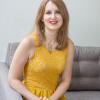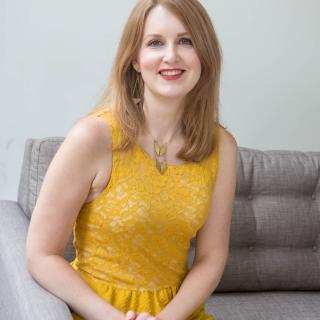 Advice. It’s everywhere, especially when you’re a new parent. Friends, relatives, other parents — they all have something to say. And many of these ideas and suggestions are good ones; after all, doesn’t it take a village to raise a child?
Advice. It’s everywhere, especially when you’re a new parent. Friends, relatives, other parents — they all have something to say. And many of these ideas and suggestions are good ones; after all, doesn’t it take a village to raise a child?
Then there’s the not-so-valuable advice — the opinions you should listen to with a sizeable grain of salt. We chose our top five:
1. YOU MUST BREASTFEED YOUR INFANT
Experts say breastfeeding is best for your child. The American Academy of Pediatrics recommends nursing exclusively for the first six months — and continuing to breastfeed at least through the first year while introducing solids. In a perfect world, every mother would breastfeed.
“There is not really much debate as to which option is optimal for baby’s nutrition, ‘breast is best,’” says Dr. Mollie Grow of Seattle Children’s Hospital. “As pediatricians, we want all parents to be fully supported in having breastfeeding as an option.”
But the reality is, families may choose not to breastfeed or are unable to — some women, for example, struggle with low milk supply and must supplement with formula.
If you do feed your baby with formula, rest assured that today’s formula is better than ever. Thanks to advances in research, modern formula closely mimics the qualities of breast milk, and includes special fatty acids and immune protection.
Listen to your pediatrician. He or she will help you decide what’s best for your child and your family. And if needed, consult with a lactation expert to help you come up with a plan that fits your family’s needs.
2. DON’T VACCINATE YOUR BABY
Experts recommend a specific vaccination schedule for babies, aimed at protecting them from major diseases, such as measles, polio, mumps and pertussis (whooping cough). But what happens when the family in your new-parent group insists that vaccinations are risky for your baby? Here’s the response, based on the latest scientific studies: Children should have their vaccines.
“The recent public health announcement about measles cases in Seattle, Wash., and Brooklyn, N.Y., underscore why vaccines are so important, and why I strongly recommend childhood immunizations like the measles-mumps-rubella [MMR] vaccine,” says Dr. Doug Opel of Seattle Children’s Hospital.
That said, stay in the loop — and stay informed. Talk with your child’s pediatrician about the inoculations. What are they for? When should they be given? What side effects should you watch out for? How can you help make your child as comfortable as possible during and after the shot?
For more information, check out the National Network for Immunization Information.
3. DON’T LET YOUR CHILDREN TALK TO STRANGERS
Who doesn’t remember this ubiquitous warning? The advice is sound, but it needs an update. According to Pattie Fitzgerald, nationally recognized child safety educator and founder of Safely Ever After, not all strangers are created equal.
“My approach is to teach children to watch out for ‘tricky people’ — that would be anyone who asks a child to do something that breaks their ‘family safety rules’ or to do something that feels yucky, weird or wrong,” says Fitzgerald. She teaches children to say no and get away quickly if someone gives them what she calls an “uh-oh” feeling for any reason, even if it’s someone they know.
But what if the child gets separated from a parent and needs help from a stranger?
“There may be times when a child needs help from a ‘safe’ stranger — that would be another mom with kids,” Fitzgerald says. “Another safe stranger would be the ‘cash register’ person at a store, who can make an announcement.”
4. SANITIZE EVERYTHING
Welcome to Generation Germophobic. We wipe table tops, we wipe airplane seats, we wipe cell phones and remote controls.
News flash: The latest studies suggest that a lack of early exposure to germs and, well, dirt, increases susceptibility to allergies by suppressing immune system development. Researchers call this the hygiene hypothesis.
In fact, if you’ve ever secretly cleaned off your baby’s pacifier with your own saliva after it’s fallen on the ground, you could be on the right track. A recent study in the journal Pediatrics looked at families that did this. Researchers found that these children had fewer cases of eczema, an early manifestation of allergies.
While the study is a small one, and the American Dental Association noted that bacteria transmitted from parents’ saliva can lead to tooth decay, it’s among the latest research showing that exposure to microorganisms can be good for the baby’s immune system.
How do you sort out all the research? Common sense — washing hands after using the bathroom and before eating, for example — is a good thing. But avoiding every last germ might not be.
5. LET THEM CRY! DON’T LET THEM CRY!
Talk about mixed messages. Do we wake baby to feed him? Let him cry? Try sleep training? Bed sharing? No wonder we’re still perplexed — and still trying to figure out how to get our babies to sleep at night. Everyone’s got an idea, and you’ve probably heard them all — from parent groups, parenting classes and every book you’ve read that promises peacefully snoozing newborns.
But when it comes to baby sleep advice, it’s best to trust your gut.
“There are many approaches to infant sleep, and it can be very overwhelming to read or hear about them for a new parent, particularly when so many people have very strong opinions on them,” says Dr. Maida Lynn Chen, associate director of the Pediatric Sleep Center at Seattle Children’s Hospital. “There is no single correct approach to infant sleep. The reality is that most parents take bits and pieces from a variety of methods, and their infants turn out to be just fine.”
Chen acknowledges that this can be a stressful time for families and offers these pointers: Learn the signs of infant sleeplessness and watch for them in your own baby. And be realistic about your own parenting techniques, preferences and weaknesses, she says.
“Parents’ responsibilities are to provide safe sleep environments and to model healthy sleep habits for their children, and that starts in infancy.”
Daytona Strong is a journalist who has written for a variety of local and national media. She writes about food, family and her Scandinavian heritage on her blog, Outside Oslo.











